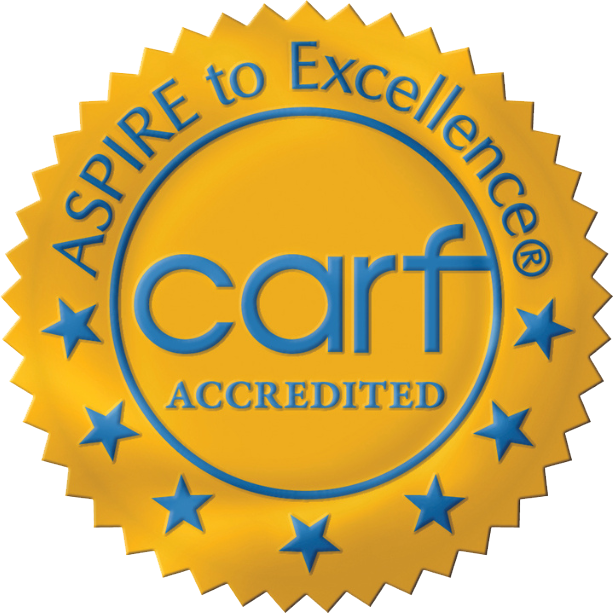Traumatic brain injury, or TBI, including communication ability, can significantly impact a person’s life. Whether it’s a traumatic brain injury from a sports accident or a stroke, regaining speech can be challenging and unpredictable.
In this blog, we will explore the different factors affecting speech recovery time and provide tips to optimize the journey to regain speech after a brain injury.
Understanding brain injury and its effects on speech
The cause of these injuries can vary, including trauma, stroke, or illness. Recognizing the impact of brain injury on address is vital in providing appropriate support and treatment. One of the main concerns is dysarthria, which causes speech to be unclear or complicated to produce.
In addition to fluency, brain injury can also affect language skills, such as understanding and expressing thoughts and emotions, posing challenges in social interactions. Aside from physical effects, brain injury can also have psychological consequences, causing frustration, anxiety, and reduced self-confidence. Therefore, creating a supportive environment for individuals with brain injury is crucial.
What parts of brain damage affect speech?
Let’s explore the different parts of the brain that can be damaged and how they can affect speech.
Located in the frontal lobe, this area is responsible for speech production. Damage to this area can result in difficulty with speech production, including slurred speech, stuttering, and problems with word formation.
Found in the temporal lobe, this area is responsible for understanding and comprehending written and spoken language. Damage to this area can lead to difficulty understanding what is being said and trouble with word recall and language comprehension.
It is located in the frontal lobe, and it controls the muscles involved in speech production. Damage to this area can cause weakness or paralysis in the muscles used for speech, resulting in difficulty speaking clearly.
This area plays a crucial role in memory and language functions. Damage to this area can affect both expressive and receptive language skills, resulting in difficulties with both speaking and understanding language.
How long does it take to regain speech after brain injury?
Recovering from a brain injury can be a challenging and lengthy process. The recovery process varies depending on the severity of the damage and individual factors.
Here are some things to remember:
- Every brain injury is unique so recovery timelines can vary.
- Mild brain injuries may take a few weeks or months for speech to return with proper rehabilitation. Severe injuries may take months or even years.
- Age, existing health conditions, and access to therapy can impact the recovery timeline.
- Speech therapy is crucial for improving communication skills.
- Engaging in mentally stimulating activities like puzzles can aid in speech recovery.
- Patience and a positive attitude are essential during the recovery process.
- A supportive network and consistent rehabilitation plan can make the journey easier.
If you are looking for neuro rehabilitation in Michigan, look no further than Progressions Rehabilitations. Our clinic specializes in speech therapy for brain injuries and can be trusted for quality care.
We also provide assisted living for brain injury, which aims to provide long-term physical, mental, social, and medical care to patients with brain injury.

Is it possible to fully recover from a brain injury?
Many may wonder if a full recovery is possible, and the answer is yes. While the path to recovery may vary, it is achievable with patience and support.
Medical care and rehabilitation play a vital role in the recovery process. Individuals can improve their physical, cognitive, and communication abilities by working with therapists and following treatment plans.
Furthermore, healthy lifestyle changes can aid brain recovery and overall well-being, such as a proper diet, exercise, and adequate rest. Having a robust support system during the recovery journey is also essential. Family and friends can provide encouragement and assistance, making a significant difference and understanding that every person’s recovery from a brain injury is unique and may take time. But with determination, proper care, and a positive mindset, overcoming the challenges and fully recovering is possible. Never lose hope for a better tomorrow.
Does speech therapy work for brain injury?
Speech therapy can significantly benefit individuals who have experienced a brain injury. It focuses on improving communication skills such as speaking, understanding, reading, and writing. The therapist utilizes various techniques and exercises to target specific areas affected by the injury.
In conjunction with physical therapy, which focuses on regaining motor functions, speech therapy can improve overall functioning for those with a brain injury. The two treatments work hand in hand to enhance cognitive and physical capabilities. If you’re considering physical therapy in Clinton Township, get expert medical care and assistance from Progression Rehabilitation.
Tips to optimize the journey to regain speech after a brain injury

While the timeline for recovering speech after a brain injury can be unpredictable, there are things individuals and their loved ones can do to optimize the journey. These tips include:
- Patience and perseverance: Recovering speech after a brain injury takes time and patience. Staying positive and not getting discouraged if progress feels slow is essential.
- Communicate in different ways: While working on regaining speech, it’s crucial to find alternative traumatic brain injury speech therapy activities, such as writing, using a tablet or phone, or using non-verbal cues.
- Practice, practice, practice: Just like any skill, practicing speech is vital for improvement. Encouraging the individual to practice speaking regularly can help strengthen their speech muscles and improve their abilities.
- Seek professional help: Speech therapy is crucial to regaining speech after a brain injury. Working with a certified speech-language pathologist who can create a personalized treatment plan and provide guidance and support throughout the recovery journey is essential.
- Take breaks and rest: Recovering from a brain injury can be physically and mentally exhausting. It’s critical to take breaks, rest, and pace oneself to avoid fatigue, which can hinder progress.
Start your journey to recovery with Progressions Rehab!
Are you or a loved one struggling with Traumatic Brain Injury? Don’t face it alone. Start your journey to recovery with Progressions Rehab! If you’re looking online for “traumatic brain injury group homes near me,” Progressions Rehab is your trusted rehab center. Our expert therapists and personalized rehabilitation programs will guide your recovery journey.
Our cutting-edge programs and compassionate team will guide you toward regaining independence and empowering you to live fully. Plus, you’ll find a supportive community of individuals on a similar path at our group homes for spinal cord injury.
Schedule your appointment with us and start your journey to a brighter tomorrow.

***
The material on this site is for informational purposes only and DOES NOT CONSTITUTE THE PROVIDING OF MEDICAL ADVICE, and is not intended to be a substitute for independent professional medical judgment, advice, diagnosis, or treatment. Always seek the advice of your physician or other qualified healthcare provider with any questions or concerns you may have regarding your health.



